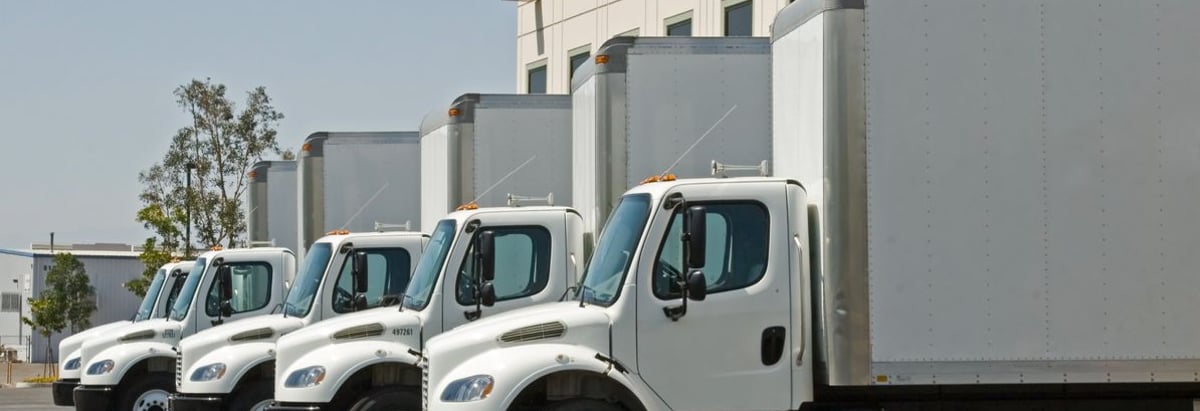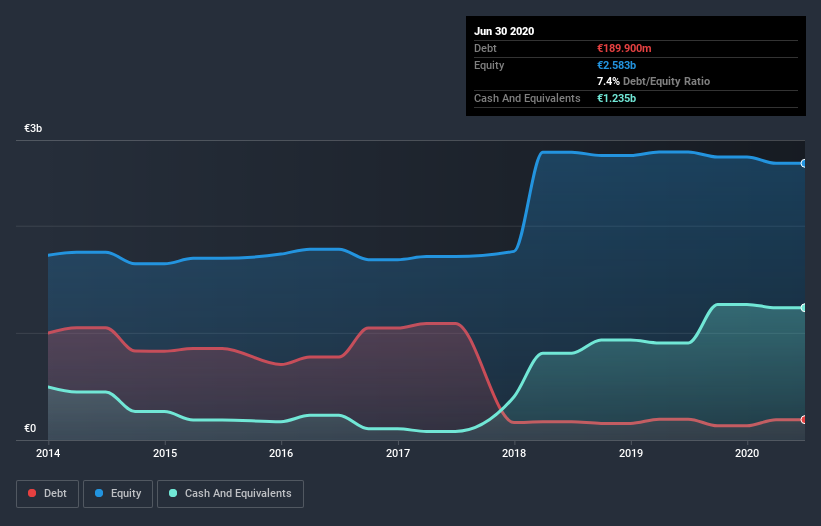
Howard Marks put it nicely when he said that, rather than worrying about share price volatility, 'The possibility of permanent loss is the risk I worry about... and every practical investor I know worries about.' When we think about how risky a company is, we always like to look at its use of debt, since debt overload can lead to ruin. We can see that D'Ieteren SA (EBR:DIE) does use debt in its business. But is this debt a concern to shareholders?
Why Does Debt Bring Risk?
Debt and other liabilities become risky for a business when it cannot easily fulfill those obligations, either with free cash flow or by raising capital at an attractive price. In the worst case scenario, a company can go bankrupt if it cannot pay its creditors. However, a more usual (but still expensive) situation is where a company must dilute shareholders at a cheap share price simply to get debt under control. By replacing dilution, though, debt can be an extremely good tool for businesses that need capital to invest in growth at high rates of return. The first thing to do when considering how much debt a business uses is to look at its cash and debt together.
See our latest analysis for D'Ieteren
How Much Debt Does D'Ieteren Carry?
You can click the graphic below for the historical numbers, but it shows that D'Ieteren had €141.7m of debt in June 2020, down from €194.5m, one year before. However, its balance sheet shows it holds €1.23b in cash, so it actually has €1.09b net cash.

How Strong Is D'Ieteren's Balance Sheet?
We can see from the most recent balance sheet that D'Ieteren had liabilities of €613.3m falling due within a year, and liabilities of €311.3m due beyond that. Offsetting these obligations, it had cash of €1.23b as well as receivables valued at €371.7m due within 12 months. So it can boast €681.7m more liquid assets than total liabilities.
This surplus suggests that D'Ieteren is using debt in a way that is appears to be both safe and conservative. Because it has plenty of assets, it is unlikely to have trouble with its lenders. Simply put, the fact that D'Ieteren has more cash than debt is arguably a good indication that it can manage its debt safely.
It is just as well that D'Ieteren's load is not too heavy, because its EBIT was down 63% over the last year. Falling earnings (if the trend continues) could eventually make even modest debt quite risky. When analysing debt levels, the balance sheet is the obvious place to start. But ultimately the future profitability of the business will decide if D'Ieteren can strengthen its balance sheet over time. So if you're focused on the future you can check out this free report showing analyst profit forecasts.
Finally, a business needs free cash flow to pay off debt; accounting profits just don't cut it. While D'Ieteren has net cash on its balance sheet, it's still worth taking a look at its ability to convert earnings before interest and tax (EBIT) to free cash flow, to help us understand how quickly it is building (or eroding) that cash balance. Over the last three years, D'Ieteren actually produced more free cash flow than EBIT. There's nothing better than incoming cash when it comes to staying in your lenders' good graces.
Summing up
While it is always sensible to investigate a company's debt, in this case D'Ieteren has €1.09b in net cash and a decent-looking balance sheet. The cherry on top was that in converted 245% of that EBIT to free cash flow, bringing in €135m. So is D'Ieteren's debt a risk? It doesn't seem so to us. There's no doubt that we learn most about debt from the balance sheet. However, not all investment risk resides within the balance sheet - far from it. Case in point: We've spotted 1 warning sign for D'Ieteren you should be aware of.
If you're interested in investing in businesses that can grow profits without the burden of debt, then check out this free list of growing businesses that have net cash on the balance sheet.
When trading D'Ieteren or any other investment, use the platform considered by many to be the Professional's Gateway to the Worlds Market, Interactive Brokers. You get the lowest-cost* trading on stocks, options, futures, forex, bonds and funds worldwide from a single integrated account. Promoted
New: Manage All Your Stock Portfolios in One Place
We've created the ultimate portfolio companion for stock investors, and it's free.
• Connect an unlimited number of Portfolios and see your total in one currency
• Be alerted to new Warning Signs or Risks via email or mobile
• Track the Fair Value of your stocks
This article by Simply Wall St is general in nature. It does not constitute a recommendation to buy or sell any stock, and does not take account of your objectives, or your financial situation. We aim to bring you long-term focused analysis driven by fundamental data. Note that our analysis may not factor in the latest price-sensitive company announcements or qualitative material. Simply Wall St has no position in any stocks mentioned.
*Interactive Brokers Rated Lowest Cost Broker by StockBrokers.com Annual Online Review 2020
Have feedback on this article? Concerned about the content? Get in touch with us directly. Alternatively, email editorial-team (at) simplywallst.com.
About ENXTBR:DIE
D'Ieteren Group
Operates as an investment company in Belgium, France, rest of Europe, the Middle East, Africa, America, the Asia-Pacific, and internationally.
Reasonable growth potential with adequate balance sheet and pays a dividend.


